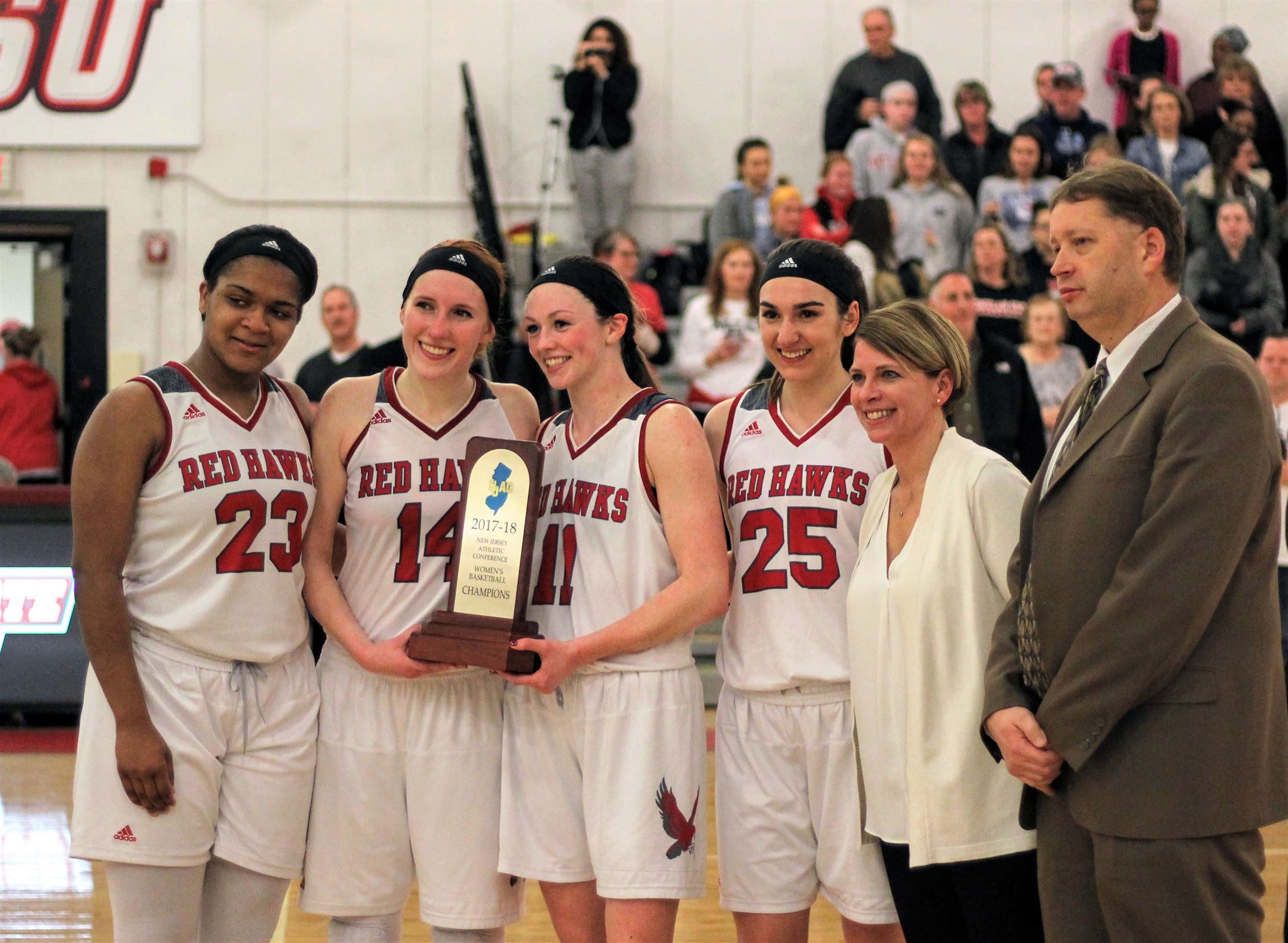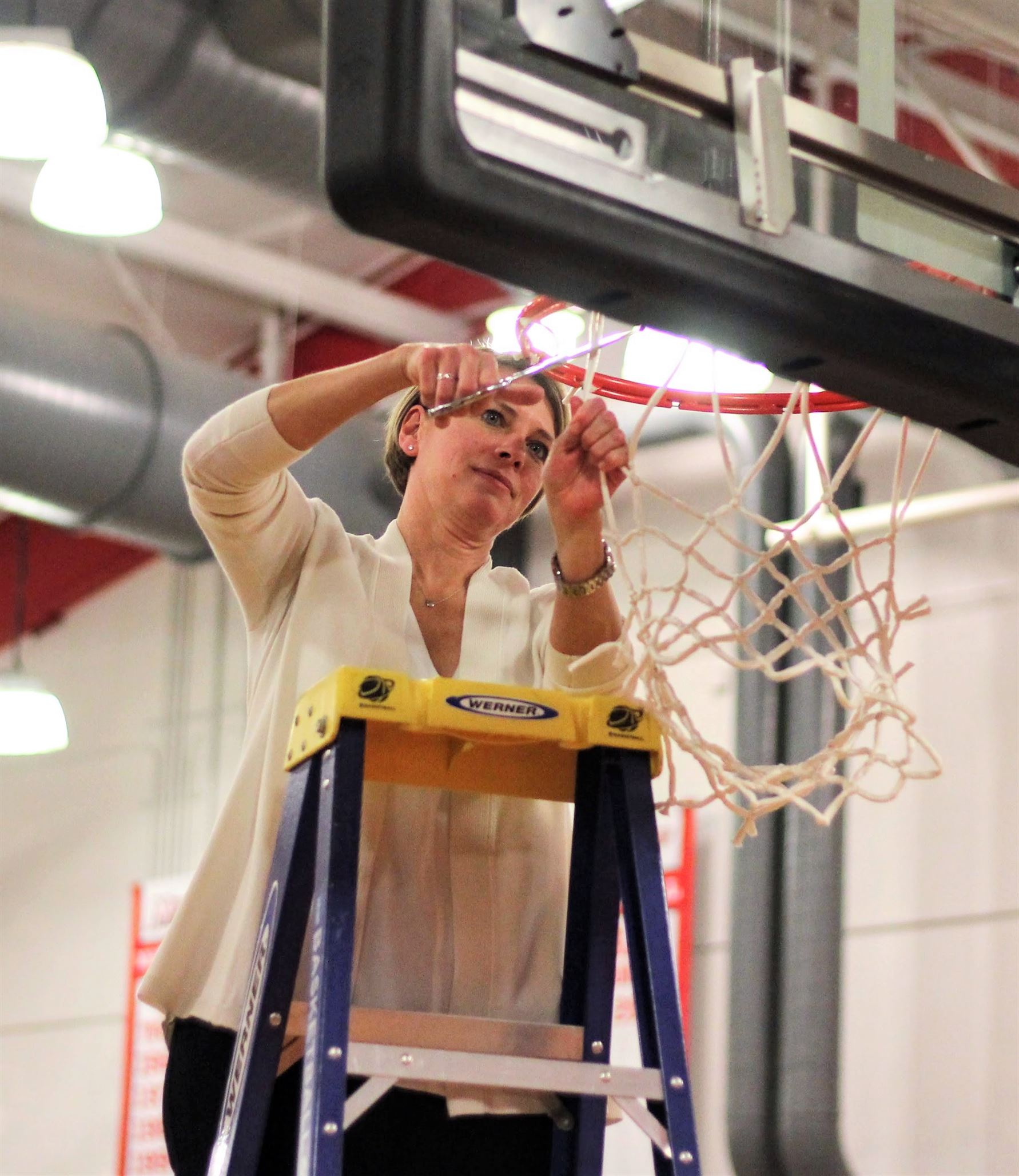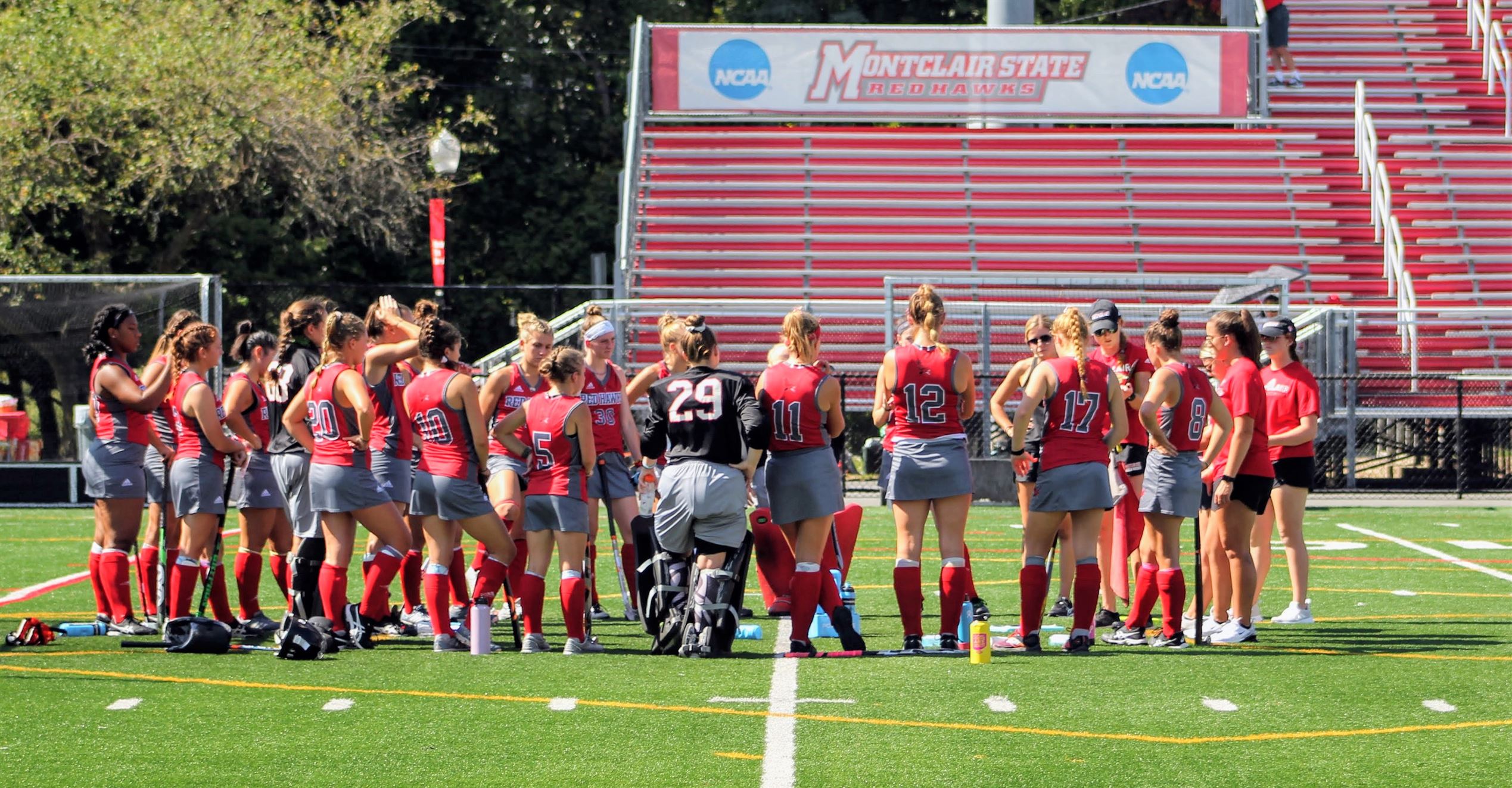No scholarships. No games aired on national television. A perceived notion of inferior talent. These are just a few of the hurdles posed for many Division III coaches when persuading players from around the country to come to play for their school.
However, Montclair State University boasts one of the most successful and storied athletic programs in the New Jersey Athletic Conference (NJAC), as well as on the East coast. Teams are winning conference championships year in and year out, as well as consistently being in the conversation for national championships.
The big question is: How are coaches able to bring such high-class athletes into a Division III school such as Montclair State?
For many athletic teams at Montclair State, there is a rich tradition of competing for and winning championships. For Eileen O’Reilly, the head coach of the field hockey team, the winning mentality makes recruiting easier.
“It’s a big piece of our recruiting process that we try to sell,” O’Reilly said. “We try to tell our athletes that they’ll have the opportunity to compete for conference and national championships here.”
This is not all “talk,” as the field hockey program has made it to the national tournament in six of their last nine seasons, including conference championships in 2012 and 2013 and a national runner up finish in 2012.
The success is clearly there for the field hockey program, but it all comes down to the athletes that the school is able to pull in. Throughout O’Reilly’s time with the team, she has coached seven All-Americans and several more All-NJAC players, with the most recent All-American being senior goalkeeper Nicole Andriani.
While O’Reilly does value talent and athleticism, it always comes down to more than that.
“Coachability, leadership and attitude are all things that we look for in our recruits,” O’Reilly said. “We also have to see if they can fit into our culture.”
The field hockey team is not the only program on campus with a winning culture; the women’s basketball team has garnered quite a reputation in the past decade. Led by head coach Karin Harvey, the program won six consecutive conference championships from 2012 to 2018, including a third-place finish in the national tournament in 2015.

Head Coach Karin Harvey and her team celebrate the Red Hawks sixth straight NJAC title at Panzer Athletic Center on Feb. 23, 2018.
Ben Caplan | The Montclarion
For a program to maintain success, the coaching staff must be very active on the recruiting trail. Although the team has much success on the court, they have seen even more success in terms of their recruiting.
For Harvey and her staff, this process is a rigorous one.
“Our recruiting database starts at about 150 players, and it gets dwindled down from there,” Harvey said. “For me, it’s about getting out on the road and being at games and tournaments.”
Those who know Montclair State women’s basketball know that Harvey’s team plays a very specific brand of basketball, particularly on the defensive end. For her, it is not necessarily about how good the player is, but how well they can adjust to the team’s style.
“Katie Sire and Melissa Tobie are two of the greatest players to ever play here, and we knew when we saw them play that they would be a great fit for our program,” Harvey said.
One thing that many coaches agree on is that Montclair State’s academic reputation and attractive campus has been a major selling point. For a basketball program that recruits in a very strategic way, this has proven to be helpful.

Coach Harvey cuts down the basketball net to celebrate her team’s six straight conference title.
Ben Caplan | The Montclarion
“I always say that if we can get a prospective student-athlete on campus, we are halfway there,” Harvey said. “Our campus is gorgeous and we have great academic programs that we can offer them at a reasonable price.”
Not every athletic program at Montclair State has been so successful in the art of recruiting. The swimming and diving teams have been declining in recent years, with the men’s team only fielding a 12-man roster this season.
However, head coach Brian McLaughlin and assistant coach Maria Vira have been aggressive in their recruiting efforts, and are expected to bring in one of the biggest recruiting classes in recent memory, particularly on the men’s team.
“The school sells itself, so we have to be a little bit more convincing when recruiting,” Vira said. “The one thing that we’ve changed is to push the vision of our program and what we are looking to accomplish.”
It also helps that the program has made an effort to push themselves as a Division III school with a Division I feel, which includes competing against Division I programs.
“We tell our recruits that we try to mimic everything that the better Division III, II and I schools do,” McLaughlin said. “We try to do this by the meets we go to, the way that we coach, our winter training in St. Croix [and so on].”
With how demanding recruiting can be, it comes as no surprise that it can get expensive. From flying out to camps and recruiting events, to hosting recruiting events on campus, they can be a financial strain on an athletic department.
The university has recently increased the athletic department’s recruiting budget, making recruiting on a larger scale easier. The field hockey program has already benefited from this budget increase.
“It’s allowed us to go to more national showcases, and financially speaking, recruiting hasn’t been a problem for us because we are able to afford to go to these events,” O’Reilly said.
Athletic director Robert Chesney has been adamant that the university has made a significant effort to support teams in their efforts to pursue top student-athletes.
“By increasing the budget, it allows coaches to expand their reach further outside of New Jersey and more into the region, such as Pennsylvania, New York and Connecticut,” Chesney said.
Ultimately, no matter how coaches recruit their student-athletes, Chesney believes that coaches will primarily bring athletes that are well-rounded individuals.
“Our coaches want our players to be good students and people, as well as being able to compete athletically at a high level,” Chesney said.



